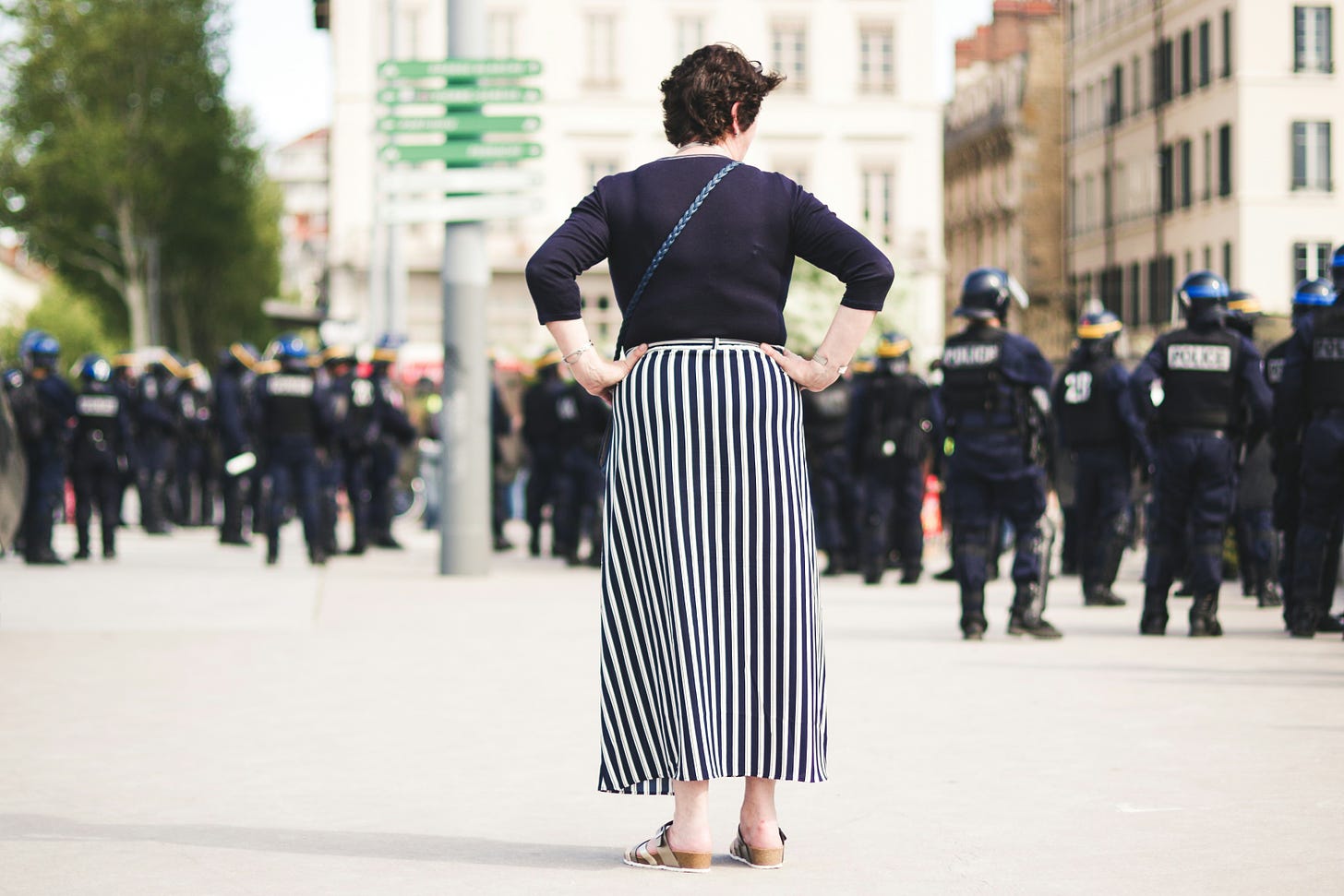National Journal had its annual dark week, so you’ll have to wait for my stories to come out after Tuesday. I spent the week writing and interviewing interesting people, so there will be plenty for you to dig into. It was kind of refreshing to have a week off from publishing so I could widen my net and talk to people I hadn’t spoken to before.
This week is about France, specifically, President Emmanuel Macron’s refusal to name a prime minister over a month after the last election.
The July vote left the 577-seat French National Assembly divided between the left-wing New Popular Front alliance, Macron’s centrists, and the far-right National Rally.
The NFP argues they should pick the next prime minister because they won the most seats. They chose 37-year-old Lucie Castets as their candidate. But Macron has dug in his heels. Lazo Magazine has an in-depth interview with France watcher Olly Haynes about the messy affair that is French politics. He spoke about divisions in the French political left and the nuances of the French political system.
You can read that by clicking here.
And while we’re on the subject of France, my very dear friend, the Paris-based sound engineer and musician Aurélien Thome, is now on Spotify. Check him out. He’ll have an album out soon.
I also just started reading a new memoir, I’m Mostly Here to Enjoy Myself, about a 46-year-old woman who goes to Paris for a month after spending 16 months of the pandemic alone in a New York City studio apartment. I’m still at the very beginning, but so far, it’s delightful. Who doesn’t enjoy a good story about an older-ish woman going feral on a solo adventure?
Lazo Magazine is on social media. You can follow along on Facebook, Twitter, LinkedIn, and Instagram. And if you can donate to Lazo Magazine or become a paid subscriber to this newsletter, that’s always appreciated. I mean, come on, give us money. This is a lot of work ;-)
What I’m reading:
• The Sunday Times has a feature from the West Bank, where extremist Israeli settlers drive Palestinians from their homes, push for more settlement construction, and indoctrinate children. “God promised us this land and told us if you don’t take it, bad people will try and take it and you will have a war,” says Emuna Billa, 19, one of the camp supervisors. “Why do we have a war in Gaza? Because we don’t take Gaza.”
• Israel’s military launched unusually large-scale raids and airstrikes in the occupied West Bank, killing at least ten people, NBC News reports.
• Israeli far-right national security minister Itamar Ben-Gvir suggested in an interview that he would like to build a synagogue at Jerusalem’s disputed Al Aqsa Mosque, drawing domestic and international condemnation, the New York Times reports.
• A 10-month-old baby in Gaza has been partially paralyzed after contracting polio, the BBC reports, marking the first case of polio the territory has registered in 25 years.
• The European Union’s foreign policy chief, Josep Borrell, proposed sanctioning Israeli ministers for hate speech and incitement to war crimes, Al Jazeera reports.
• A military court in Moscow placed former Deputy Defense Minister Pavel Popov in detention on fraud charges in the latest of a string of corruption probes of officials tied to former Defense Minister Sergei Shoigu, Reuters reports.
• Ukrainian President Volodymyr Zelensky said the country’s incursion into Russia’s Kursk region is part of a larger plan to end the war, the Washington Post reports.
• Radio Free Europe reports on how Georgia’s non-governmental organizations are defying the country’s new foreign agents law, which sparked massive protests earlier this year.
• In Georgia, the ruling Georgian Dream party promised to dissolve the opposition United National Movement if it wins enough seats in the October elections to enter parliament, Politico Europe reports. The Georgian Dream accuses its opponents of conspiring with Western nations to open a “second front” against Russia during its war on Ukraine.
• The Observatorio Balcani i Caucaso has a story from the Serb-majority village of Krupa in Croatia and what a friendship between two women says about ethnic tensions and economic development in the region.
• New Lines Magazine has a truly wild personal essay about how prominent Muslims in Austria were painted as enemies of the state in a crackdown called Operation Luxor.
• Britain’s Attorney General intervened in the Foreign Office’s decision over whether to ban U.K. arms sales to Israel, the Guardian reports. Richard Hermer told officials he would not approve a decision to ban some weapons sales until they can definitively say which could be used to break international humanitarian law.
• Iran’s supreme leader suggested his country would pursue nuclear negotiations with the United States, saying there was “no barrier” to discussions with the “enemy” in a video broadcast on state television, the New York Times reports.
• The Tunisian Administrative Court upheld an appeal by presidential candidate Mondher Znaidi, allowing him to return to the upcoming presidential race, Reuters reports. This is the second such ruling and could give the race renewed momentum.
• The relentless attacks against civil society organizations and activists in Cambodia reveal that democratic progress remains distant and elusive, according to a statement from ASEAN Parliamentarians for Human Rights. Since July 2024, 94 people have been arrested for criticizing the Cambodia-Laos-Vietnam Development Triangle Area (CLV-DTA) development plan. 59 people, including children, remain unlawfully detained and charged under baseless accusations of plotting or incitement.
• Mexican President Andrés Manuel López Obrador announced his government was “pausing” relations with the U.S. and Canadian embassies in response to criticism of his proposed judicial overhaul. Reuters has the story.
• Opponents of Venezuelan President Nicolás Maduro revived protests in Caracas following last month’s contested presidential election, the Associated Press reports.
You can write to me for any reason: c.maza@protonmail.com





